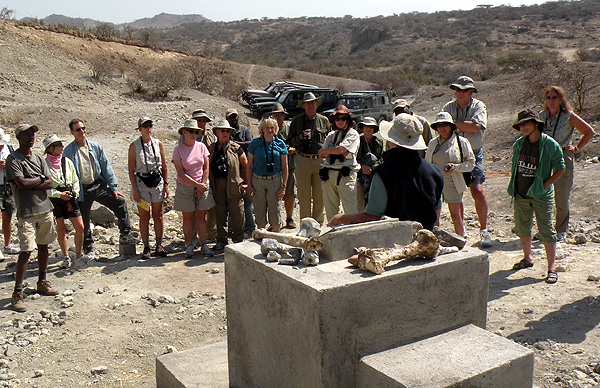
The enthusiasm bubble is bursting. Tomorrow most of East Africa will be open for business. But… no one’s coming.
My African colleagues shouldn’t be too disheartened. It was always too hopeful to believe that the only thing keeping people back was government restriction. Two things need to be clearly understood: the current reality of the pandemic and how profoundly it will change future travel.
The risk/benefit that every traveler goes through planning a vacation is now more germane than ever. This isn’t just a calculation about the risk of getting the virus or about what the virus has done to the destination.
First and foremost it’s a fiscal calculation. We’re in a serious worldwide recession. This is the only economic downturn caused by biology in a century. As with the Spanish flu it could lead to struggling economies followed by a massive economic downturn. Obviously travelers think about this.
The excessive enthusiasm by vendors was fueled in part by a belief that there was a “pent-up” market. Until now this has kept pricing much higher than I thought it would be. Well, we’re learning now there is no pent-up market, and I’ve seen the first indications that pricing is going down: “deals” galore are being codified into actual rates.
For the last half century a remarkable half of foreign African tourism has been designed for the very rich. This contrasts starkly with worldwide tourism where a small fraction is designed for the very rich.
All economic downturns impact the rich, but this one especially so.
The extraordinary debt assumed to stave economic collapse means there’s no question that taxes are going up. In the current progressive political climate, that means especially so for the rich.
So while about half the foreign African tourism was sustained by only the top 5% of wage earnings in foreign countries, I expect this to drop by half or more. The market for the rich will always exist, but it is right now over saturated with supply.
There are too many Singitas, Londolozis, andBeyonds, etc. Increased competition for the smaller market will pressure pricing. This is particularly hard for upmarket companies. Their volatile profits arise in large part from costly services which will not be easy to excise without erasing the entire image. Attempts to “make ends meet” may gut their very reasons for existing.
This will be the situation for at least the next decade. After that the future of high-end African travel will depend upon the direction societies take economically. If income inequality is aggressively addressed, high-end anything will suffer.
The rest of the African market, and actually the rest of all foreign travel below the current “luxury market” will actually benefit from the shrinking of the high end. None of the market, however, can avoid the other reality caused by the pandemic:
The magic of Africa is over.
That’s an overstatement, as it would be with any travel destination. But I don’t know how else to emphasize how different the “tourism environment” has become and it especially applies to Africa.
Powerful world events like wars or pandemics or climate disasters of the sort we will but haven’t yet experienced close the chapters on many social eras.
This could be, for example, the true ending of supply based economics. We may shortly abandon private education or illogical protections of non-sectarianism or the punishment of criminals with the sort of mass incarceration prevalent today or the stupid antipathy against certain recreational drugs.
I expect the whole range of vacation travel motivated by fantasy is going to greatly diminish.
A lot of what the vacationer paid for in the past was anticipation of a fantasy. I’m not sure there’s anything wrong with this; we all need magic in our lives. But information is becoming so easily accessible, that the more a traveler dispels his fantasies, the harder it will be for the destination he was considering.
No vacation travel carries more of this fantasy component than an African safari.
Vendors are going to have to replace scanty costumes and native dances with feather pillows and rewards programs. Travelers who signed up in droves to see the Lion King will be replaced by more specialized travelers excited by biodiversity.
This seismic change for African travel will go through a rough transition. Travelers and investors alike need to be aware. The ingrained practices and long-time presumptions by my relatively small industry present formidable obstacles to change. I just hope they change before losing the viable market – albeit smaller and less outlandish – altogether.
(For my American readers note there is right now only one country in sub-Saharan Africa that is practical to visit: Tanzania. Virtually all the other countries either ban Americans outright or require extensive documentation including recent Covid-19 negative results from specific kinds of tests hard to get in America, and/or require lengthy quarantines on arrival.)
(Moreover, since Americans are still banned from entering most European countries, this greatly reduces the options for traveling to sub-Saharan Africa right now and also greatly increases the costs.)